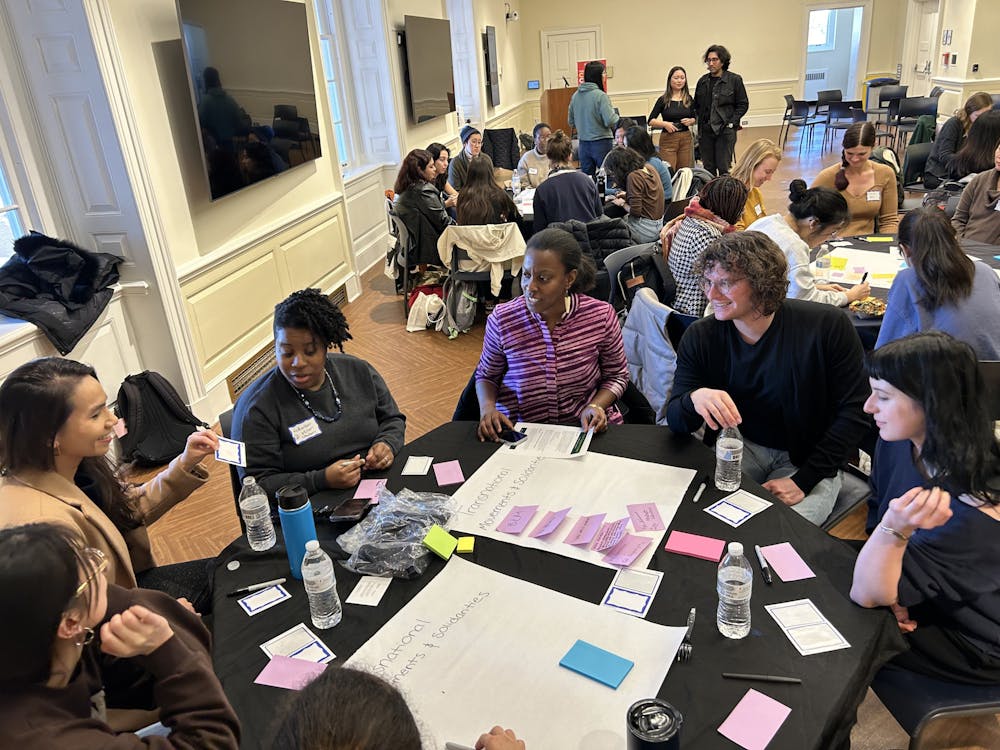The new Chloe Center for the Critical Study of Racism, Immigration, and Colonialism is a research center that officially launched this semester. The center emerged from the Program in Racism, Immigration, and Citizenship (RIC) founded in 2006 and is currently directed by Professor Stuart Schrader.
With this expansion, the Chloe Center plans to continue programs from the RIC, such as open roundtables and the Graduate Student Symposiums, in addition to expanding and bringing more people into its orbit.
While RIC was primarily oriented towards graduate students, the Chloe Center aims to actively integrate undergraduate students. As such, the center is offering summer research grants that allow undergraduates to collaborate with a faculty member, which were previously only provided to graduate students. The undergraduate fellow position was added to its team this year as well.
Another ongoing project geared towards undergraduates is the Critical Diaspora Studies (CDS) Major initiative, which has been part of the RIC since 2021. Currently, the proposal has been approved by the Homewood Academic Council and is moving on to the Maryland Higher Education Commission.
The impetus for the major was the Atlanta spa shootings, which took the lives of eight people, six of whom were Asian women. Natalie Wang, the inaugural undergraduate fellow of the Chloe Center and one of the founding members of the initiative shared how she initially became involved in CDS in an interview with The News-Letter.
“Amidst all these tragedies and social movements, there was a sense of frustration — why wasn't our university doing more than posting on Instagram?” she said. “It really shines a light on what our institution is missing, which is [being] an institution in which students can see themselves as active participants rather than as passive recipients of policy.”
In an interview with The News-Letter, Graduate Fellow Sheharyar Imran described the discourse around the Black Lives Matter protests and anti-Asian racism movements in 2020 and 2021, which were central to the forming of the major.
“The idea was how we think about these processes together, not as separate. How do we think about the entanglements, the differences in oppression against Black and Asian people, and the solidarity across these differences? What does it look like in Baltimore? The whole idea for the major came about from that moment,” he said.
While existing majors also observe issues such as migration, solidarity and indignity, CDS differentiates from traditional models that are usually situated based on geographic borders and ethnicities. Instead, the major is dedicated to the study of racism in comparative and transnational contexts.
Imran believes that the new major will enable students to have a global perspective on such issues rather than sticking to the frames that were used in academia historically.
“We found [traditional] approaches to be insufficient for understanding the really complex, global and entangled experiences that students are experiencing in their everyday lives,” he said. “If you are operating within well-defined ethnic categories, it's harder to see the overlaps, entanglements, dissonances across different groups.”
Students enrolled in the major would be able to choose between four tracks: Migration and Borders; Global Indigeneities; Empires, Wars and Carceralities; and Solidarities, Social Movements and Citizenship. In their junior year, students will conduct research in partnership with a Baltimore-based organization. Wang stressed the importance of this collaborative research project.
“We really wanted to have a thoughtful eye towards the relationship between the university and the city, which is very unique and complex. That's something that not all students have the chance to really grapple with in a structured way,” she said. “It was important to us that the major was Baltimore-specific and dealt with the different dynamics that we have here in this region.”
To celebrate its opening and share its programmatic goals, the Chloe Center held an event titled “Who’s Chloe?” in February. In the second part of the event, attendees took part in a workshop session that aimed to think about what the curriculum of the CDS major would look like. The guiding questions asked what students already know from the four tracks, what they wish they knew more and what points of references they have.
Imran voiced that the workshop session embodied the spirit of how the major came to be in the first place, which has always been from the ground up.
“[The CDS initiative] was motivated by students and developed by students who were in conversation with graduate students and faculty,” he said. “The idea was to continue this ground-up ethos and allow a broader range of students to share their visions of what the major could look like.”
He added that the major would be different from those offered in other traditional departments in the sense that students would be expected to build their own course of studies in response to their needs, concerns and interests.
Wang emphasized that the focus of CDS is not just relevant to the humanities, but other disciplines as well. She expressed her hopes for STEM students to see the major as accessible.
“The world of healthcare is so massive at Hopkins [that] we can't not talk about it,” she said. “There is really a lot of room for people who see themselves as professionals in healthcare to be taking classes through CDS, because we see issues of healthcare and justice deeply entangled with what the Critical Diaspora Studies major is looking at.”





